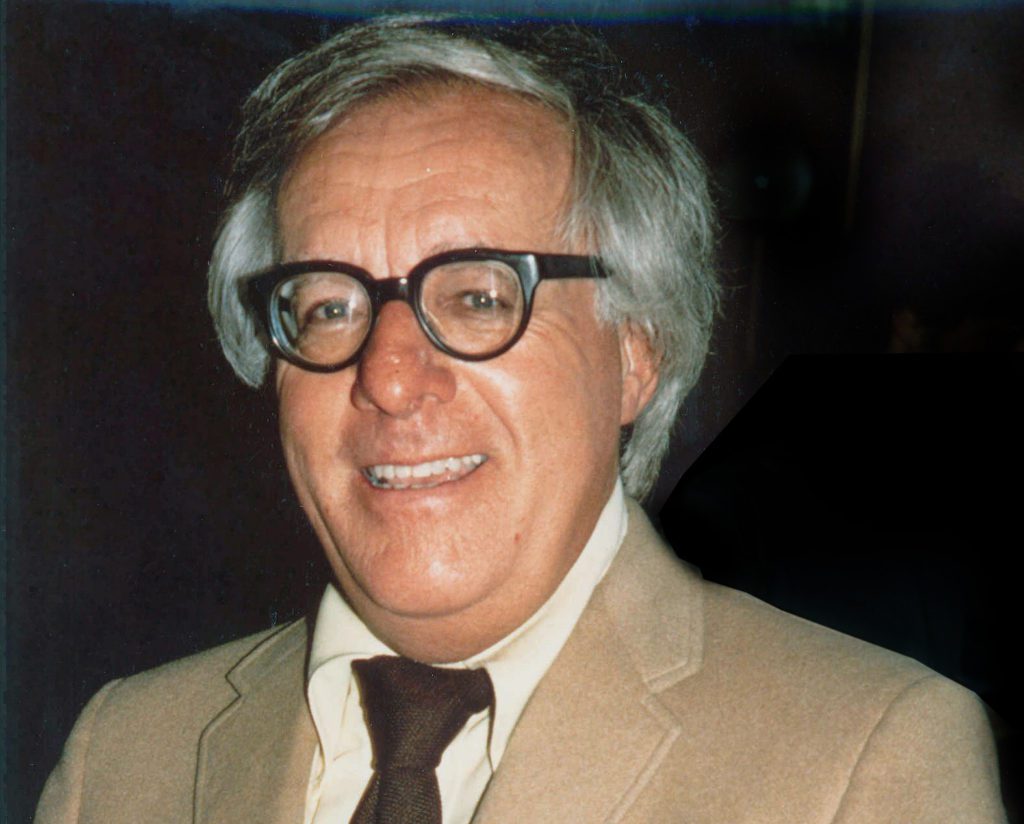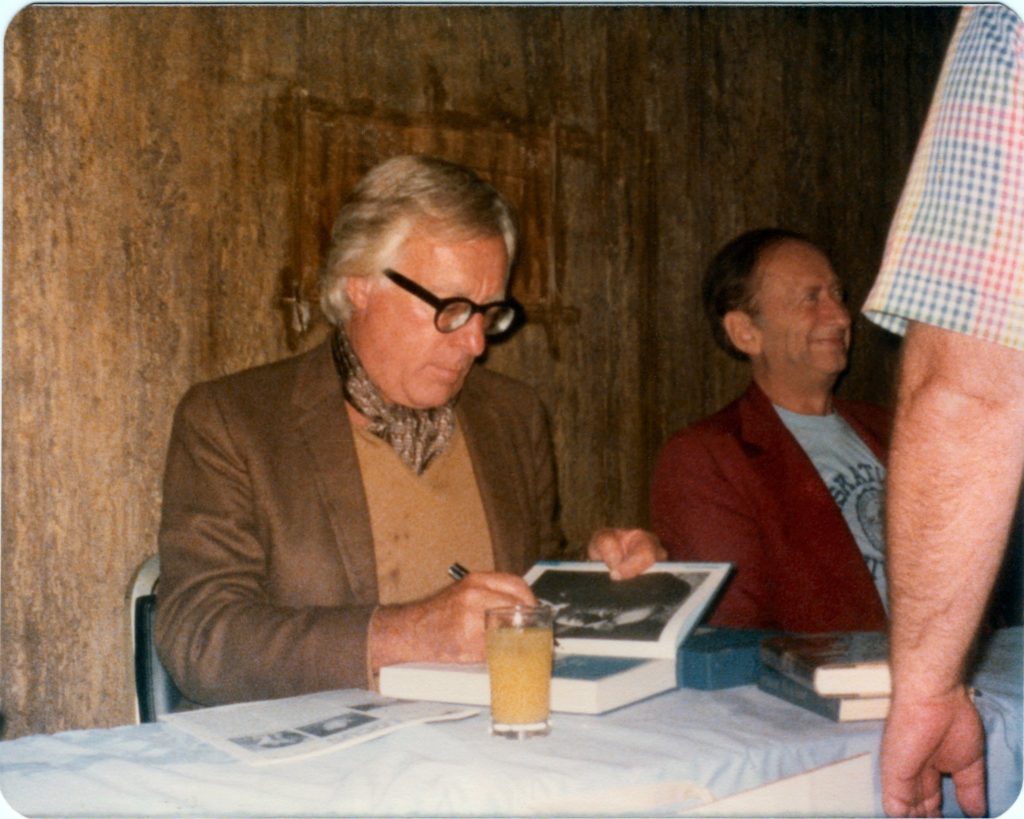Ray Bradbury’s Top 13 Writing Tips
The pen of Ray Bradbury birthed one of my all-time favorite novels: Fahrenheit 451.
Bradbury’s dystopian tale of firefighters who burn books spawned multiple film adaptations and radio dramatizations. It also sold over 10 million copies while earning a spot on several banned books lists — always a sign of a classic!
In my quest to absorb writing advice from some of the greatest authors in the world, I turned to Bradbury’s collection of essays about writing and creativity, Zen in the Art of Writing.
Here are the top 13 lessons I learned from Ray Bradbury:
1. Enjoy yourself
“[I]f you are writing without zest, without gusto, without love, without fun, you are only half a writer. It means you are so busy keeping one eye on the commercial market, or one ear peeled for the avant-garde coterie, that you are not being yourself. You don’t even know yourself. For the first thing a writer should be is — excited. He should be a thing of fevers and enthusiasms.” -Ray Bradbury
Authors used to assume that to write was to have a meager economic existence but a rich artistic one. Now some writers seem to view writing as their chance to print money like James Patterson or write a series that spawns a commercial empire like Harry Potter, Twilight, or The Hunger Games.
Throughout his entire book, Bradbury implores writers to pursue the craft for themselves. “Writing is survival,” says Bradbury. “Any art, any good work, of course, is that. Not to write, for many of us, is to die.”
Don’t lose sight of your intrinsic motivation (passion for the work, creative outlet) by focusing too much on extrinsic motivation (money, popularity, status). Extrinsic motivators will leave you feeling unfulfilled at best and depressed at worst. Do it for you.
2. Don’t let others judge you for what you love
“My life has been happy ever since [embracing my childish passions.] For that was the beginning of my writing science fiction. Since then, I have never listened to anyone who criticized my taste in space travel, sideshows or gorillas. When this occurs, I pack up my dinosaurs and leave the room.” -Ray Bradbury
When Bradbury was nine years old, his hero was the fictional space traveler Buck Rogers. But when several of Bradbury’s fourth-grade classmates made fun of the way he idolized the fictional hero, Bradbury ripped up his Buck Rogers comic strips.
One month later, young Bradbury decided that real friends wouldn’t make fun of him for something he loved so much, so he began collecting Buck Rogers comics again. Bradbury looks back at that moment as one of the key turning points in his life — the moment he decided he didn’t care what others thought of him.
What will your passions lead you to write about? Don’t hide those passions.
3. Never lose your childish sense of wonder
“I was in love, then, with monsters and skeletons and circuses and carnivals and dinosaurs and, at last, the red planet, Mars. From these primitive bricks I have built a life and a career. By my staying in love with all of these amazing things, all of the good things in my existence have come about.” -Ray Bradbury
Humans begin life as curious, imaginative children, then the world eventually bashes that creativity out of us as we reach adulthood.
Rather than worrying about what would happen in a rational adult world, Bradbury embraced the playfulness of his imagination to write about a host of youthful topics. The best science fiction and fantasy is written on the edges of the possible, and that’s where Bradbury lived.
Refuse to surrender your youthfulness. Embrace curiosity. Never lose your childish sense of wonder.
4. Practice every day
“We must take arms each and every day, perhaps knowing that the battle cannot be entirely won, but fight we must, if only a gentle bout. The smallest effort to win means, at the end of each day, a sort of victory…I have learned, on my journeys, that if I let a day go by without writing, I grow uneasy. Two days and I am in tremor. Three and I suspect lunacy…An hour’s writing is tonic.” -Ray Bradbury
From youngsters learning how to play the piano to world-class athletes training for the Olympics, nearly everyone in every field is encouraged to practice every day. Why should writing be any different?
Whether that practice takes the form of journaling, writing morning pages, blogging, drafting a new story, or working on a novel, daily writing builds the necessary literary muscles for authors.
Develop a writing habit. As Bradbury says, “Take arms each and every day…if only for a gentle bout.”
5. Write fast
“In quickness is truth. The faster you blurt, the more swiftly you write, the more honest you are. In hesitation is thought. In delay comes the effort for a style, instead of leaping upon truth which is the only style worth deadfalling or tiger-trapping.” -Ray Bradbury
Every writer’s process is different. Bradbury found that for him, writing fast was the best way to ensure he was writing truthfully.
Find the process that works for you. If you’ve never tried writing quickly before, give it a shot. Experiment. Sometimes you need to try different keys in the literary lock to see what will open the door to your truest self and unlock the depths of your creativity.
6. Try writing long lists of nouns
“I began to make lists of titles, to put down long lines of nouns. These lists were the provocations, finally, that caused my better stuff to surface. I was feeling my way toward something honest, hidden under the trapdoor on the top of my skull. The lists ran something like this:
THE LAKE. THE NIGHT. THE CRICKETS. THE RAVINE. THE ATTIC. THE BASEMENT. THE TRAPDOOR. THE BABY. THE CROWD. THE NIGHT TRAIN. THE FOG HORN. THE SCYTHE. THE CARNIVAL. THE CAROUSEL. THE DWARF. THE MIRROR MAZE. THE SKELETON.” -Ray Bradbury
To spark his creativity, Bradbury would often write a long series of words, then look back over the list to see what themes jumped out to him.
The list of words above inspired his famous book Something Wicked This Way Comes. If you’ve read the book, you’ll notice multiple themes from the book within that list.
If you’re struggling to get started with a new story, the worst thing you can do is sit still and stare at a blank screen. Do something. Like Bradbury, write nouns or interesting words you’ve heard recently. Go take a walk and pay careful attention to the people you pass on the street. Invent stories for them. Listen to the conversations going on around you while waiting in line for coffee. Creativity is inspired by action — not inaction.
7. Read poetry
“Read poetry every day of your life. Poetry is good because it flexes muscles you don’t use often enough. Poetry expands the senses and keeps them in prime condition. It keeps you aware of your nose, your eye, your ear, your tongue, your hand. And, above all, poetry is compacted metaphor or simile.” -Ray Bradbury
Bradbury recommends reading poets like Dylan Thomas, T. S. Eliot, Robert Hillyer, Lord Byron, and Sara Teasdale. He’s even written stories that he credits directly back to poems by many of those writers.
For example, Bradbury says one line of Byron’s poem “So We’ll Go No More a Roving” inspired a chapter of the novel The Martian Chronicles about a group of Martians who died out from chickenpox.
Read writers who use words beautifully. Pay attention to the way they paint vivid scenes that make you feel emotions like love, hate, or envy. Breathe in their work and let it flow through you.
8. When creativity strikes, seize the moment
“And through training, you have relaxed yourself enough not to stare discourteously when inspiration comes into the room. You have learned to go immediately to the typewriter and preserve the inspiration for all time by putting it on paper.” -Ray Bradbury
Every creative person experiences occasional moments of unexplainable inspiration. And when those moments strike, the best thing you can do is drop everything else and immediately put pen to page to preserve those thoughts. This is why many inventors, writers, and musicians sleep with a pad of paper on their bedside table: to jot down random thoughts that descend upon them.
Henry David Thoreau offers this advice: “Write while the heat is in you. The writer who postpones the recording of his thoughts uses an iron which has cooled to burn a hole with.”
If you feel inspiration come over you, drop everything else and pick up a pen. Seize the moment — even if that means writing until 1 a.m. If the fish are biting, don’t stop fishing.
9. Tap into your subconscious
“Self-consciousness is the enemy of all art, be it acting, writing, painting, or living itself, which is the greatest art of all.” -Ray Bradbury
In the same way that adult-like rationality can impede childish creativity, the conscious mind can block the unconscious mind.
Bradbury believes that the best writing comes from the unconscious mind — when you’re in a free-flowing state…when you’ve stripped the governor out of your automobile and you’re rip-roaring down the road of inspiration.
He says that every writer has what they need deep inside: “We are cups, constantly and quietly being filled. The trick is, knowing how to tip ourselves over and let the beautiful stuff out.”
Get out of your own way. Don’t overthink. Let your pen do the work. You can always come along later and edit what is on the page, but for now, just write.
10. Know your characters
“Remember: Plot is no more than footprints left in the snow after your characters have run by on their way to incredible destinations. Plot is observed after the fact rather than before. It cannot precede action.” -Ray Bradbury
Similar to how Stephen King talks about sitting back and “watching” his characters do things, Bradbury says that he follows his characters’ tracks.
“Find a character, like yourself, who will want something or not want something, with all his heart,” says Bradbury. “Give him running orders. Shoot him off. Then follow as fast as you can go.”
Get into the headspace of your characters. Learn what makes them angry, excited, or scared. The more intimate your understanding of each character’s motivations, the more you’ll be able to just narrate what they’re doing next.
11. Use quantity to reach quality
“You will have to write and put away or burn a lot of material before you are comfortable in this medium. You might as well start now and get the necessary work done. For I believe that eventually quantity will make for quality…Quantity gives experience. From experience alone can quality come.” -Ray Bradbury
Bradbury says he wrote at least 1,000 words per day since he first got a toy typewriter when he was 12 years old. His first story was accepted in a magazine when he was 20. In those eight years before getting published, Bradbury wrote three million words.
Every story you write teaches you: What stories resonate most with readers? What headlines prompt people to click into the article? What lines are highlighted most on Medium and shared most on Twitter?
Each story is an opportunity to learn more about yourself, your audience, and your craft. Are you giving yourself enough opportunities to learn?
12. Forget about money and fame
“How does one get lost? Through incorrect aims…Through wanting literary fame too quickly. From wanting money too soon. If only we could remember, fame and money are gifts given to us only after we have gifted the world with our best, our lonely, our individual truths.” -Ray Bradbury
There’s so much focus these days on get-rich-quick schemes. Some people view writing on Medium as one of those schemes. They think they can start posting content on here and the money will pour in. But it doesn’t work like that. In fact, nothing really works like that.
Any legitimate career or vocation requires hundreds (or even thousands) of hours of toil before you’ll notice any payoff like money, fame, or status. Writing is no different, and if those external motivations are your goal, writing is probably one of the worst ways to achieve those payoffs.
Be patient. Remember that you’re building a masterpiece — not a sandcastle. It’s going to take some time. Many people will never see what you’ve created. Those who do see it may not understand it. Those who do understand it may never let you know how much they appreciate what you’ve created.
And you know what? That’s okay. You’re not doing it for them anyway.
13. Write YOUR story
“There is only one type of story in the world. Your story.” -Ray Bradbury
There are millions of writers in the world. Thousands of people have probably written the same type of story you’re working on right now, but each of them is writing it in their own way, and that’s a beautiful thing
The best stories are often those that tackle a familiar topic in an unfamiliar way — the stories that turn the gem ever so slightly for the reader and ask, “Have you looked at it from this angle before?”
Your life experiences, personality, upbringing, and influences have given you a unique angle on that gem. Use your personal story to expose truth for your readers. Write your story. Turn the gem.
Ray Bradbury learned to ignore those who laughed at his youthful passions. He embraced his childish sense of wonder and wrote stories that have fascinated generations of readers — stories about space, dystopian universes, the supernatural, and anything else that fascinated him.
What’s your passion? What story is burning inside you right now, ready to ignite the page and catch flame in a reader’s heart and mind?
What you write today could impact someone’s life forever. Go write your story. We’re all waiting to read it.
Happy writing!






